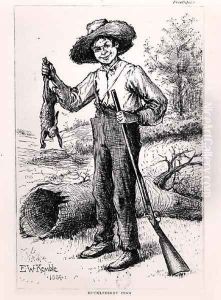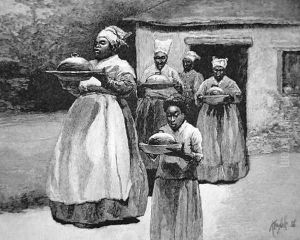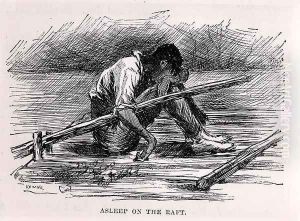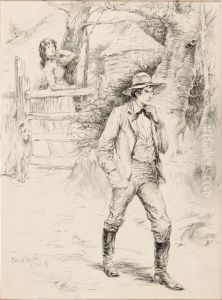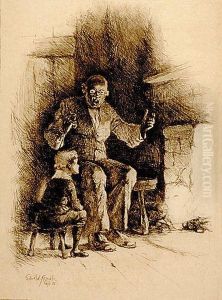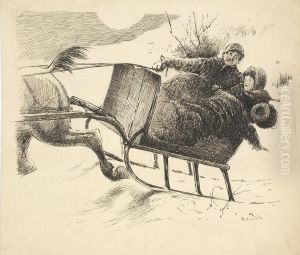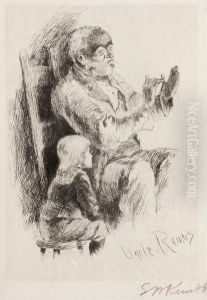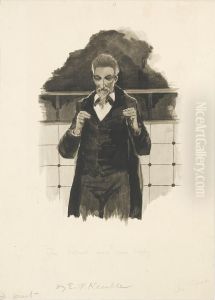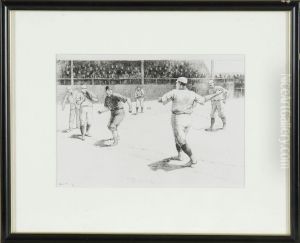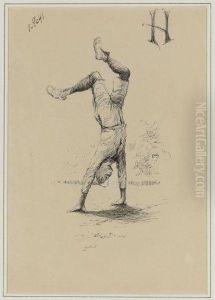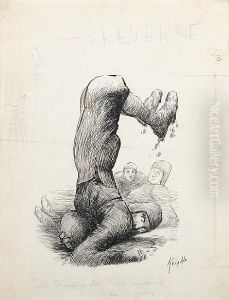Edward Windsor Kemble Paintings
Edward Windsor Kemble was a prominent American illustrator, best known for his depictions of African-American life and his work on Mark Twain's classic, 'Adventures of Huckleberry Finn.' Born in Sacramento, California, in 1861, Kemble showed an early interest in art, which was nurtured by his environment and experiences growing up in a post-Civil War America.
Initially, Kemble pursued his artistic passion through local newspapers, where his early works were published. His distinctive style, characterized by a keen observation of daily life and a gentle humor, quickly garnered attention. By the late 1880s, Kemble moved to the East Coast, where he became a sought-after illustrator for books and leading periodicals of the time, including Harper's Weekly, Century Magazine, and Life.
Kemble's most notable work came in 1884 when he was commissioned to illustrate the first edition of Mark Twain's 'Adventures of Huckleberry Finn.' His drawings for the novel, which captured the spirit and complexity of Twain's characters, were instrumental in bringing the story to life for readers. This collaboration not only cemented Kemble's reputation as a leading illustrator of his time but also contributed significantly to the novel's longstanding success.
Throughout his career, Kemble continued to explore themes related to African-American life and culture, an interest that was both personal and artistic. His illustrations often portrayed the lives of African-Americans with empathy and a depth that was rare for the time, providing a valuable visual record of the era's social landscape.
Edward Windsor Kemble's contributions to American art and literature were profound. He passed away in 1933, leaving behind a legacy that included not only his iconic illustrations for 'Huckleberry Finn' but also a vast body of work that captured the complexities and nuances of American society. His art remains a significant part of America's cultural heritage, offering insight into the nation's history and the evolution of illustration as a form of storytelling.
